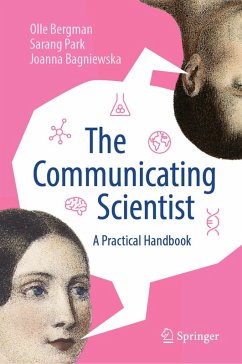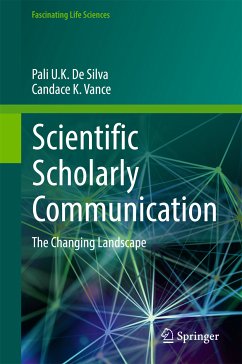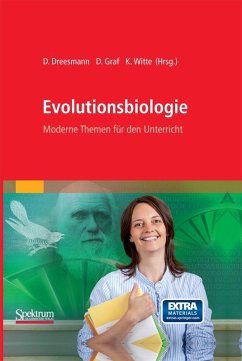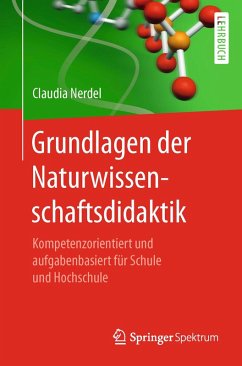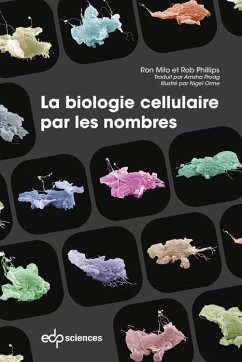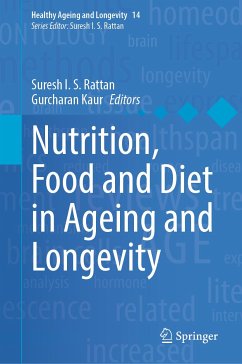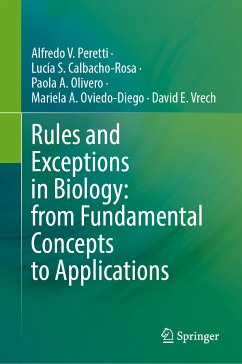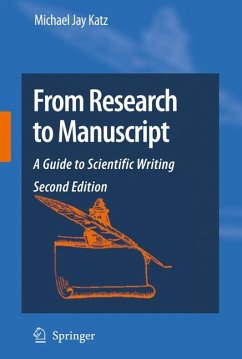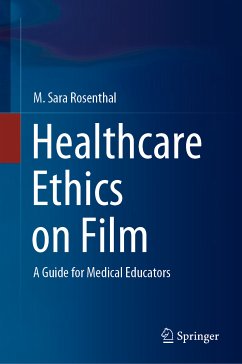
Teaching Science Students to Communicate: A Practical Guide (eBook, PDF)
Versandkostenfrei!
Sofort per Download lieferbar
36,95 €
inkl. MwSt.
Weitere Ausgaben:

PAYBACK Punkte
18 °P sammeln!
This highly-readable book addresses how to teach effective communication in science. The first part of the book provides accessible context and theory about communicating science well, and is written by experts. The second part focuses on the practice of teaching communication in science, with 'nuts and bolts' lesson plans direct from the pens of practitioners.The book includes over 50 practice chapters, each focusing on one or more short teaching activities to target a specific aspect of communication, such as writing, speaking and listening. Implementing the activities is made easy with clas...
This highly-readable book addresses how to teach effective communication in science. The first part of the book provides accessible context and theory about communicating science well, and is written by experts. The second part focuses on the practice of teaching communication in science, with 'nuts and bolts' lesson plans direct from the pens of practitioners.
The book includes over 50 practice chapters, each focusing on one or more short teaching activities to target a specific aspect of communication, such as writing, speaking and listening. Implementing the activities is made easy with class run sheets, tips and tricks for instructors, signposts to related exercises and theory chapters, and further resources.
Theory chapters help build instructor confidence and knowledge on the topic of communicating science. The teaching exercises can be used with science students at all levels of education in any discipline and curriculum - the only limitation is a wish to learn to communicate better!
Targeted at science faculty members, this book aims to improve and enrich communication teaching within the science curriculum, so that science graduates can communicate better as professionals in their discipline and future workplace.
The book includes over 50 practice chapters, each focusing on one or more short teaching activities to target a specific aspect of communication, such as writing, speaking and listening. Implementing the activities is made easy with class run sheets, tips and tricks for instructors, signposts to related exercises and theory chapters, and further resources.
Theory chapters help build instructor confidence and knowledge on the topic of communicating science. The teaching exercises can be used with science students at all levels of education in any discipline and curriculum - the only limitation is a wish to learn to communicate better!
Targeted at science faculty members, this book aims to improve and enrich communication teaching within the science curriculum, so that science graduates can communicate better as professionals in their discipline and future workplace.
Dieser Download kann aus rechtlichen Gründen nur mit Rechnungsadresse in A, B, BG, CY, CZ, D, DK, EW, E, FIN, F, GR, HR, H, IRL, I, LT, L, LR, M, NL, PL, P, R, S, SLO, SK ausgeliefert werden.



